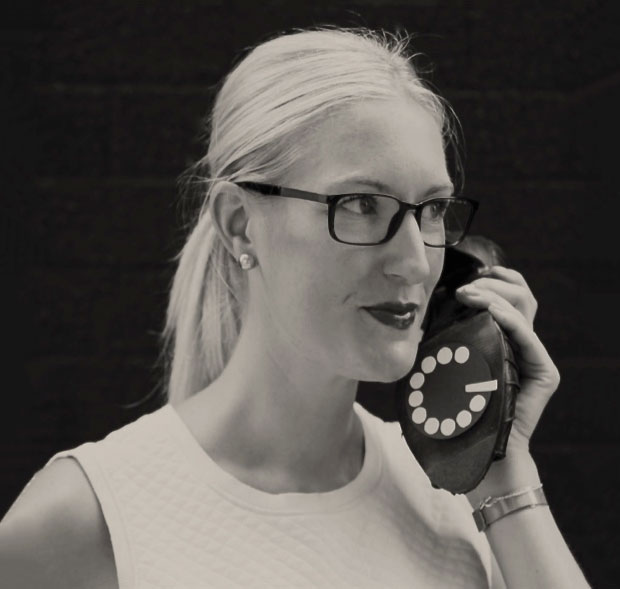Busyness vs balance.
[A five minute read]
One of my biggest lessons of my career is: Busy is not a badge of honour.
I’m going to say it again so it really sinks in: BUSY IS NOT A BADGE OF HONOUR.
At a recent industry event, I had a really interesting conversation with some peers about the culture of busyness. Over several glasses of wine, many of us shared stories about how long hours and checking emails from home at 10pm was expected, asking for help was a sign of weakness and being ‘twired’ (tired and wired at the same time, so you can’t sleep) was normal.
In one of my event roles there was a massive culture of competitive busyness. If I said I was tired because I worked a 15 hour day, someone would always pipe up “Well Claire worked 18 hours so just get on with it.” If you were great at your job, you got rewarded with more work.
No-one ever stopped to question the impact on productivity, creativity, health and longevity that this culture created – for both the individual and the workplace.
One guy was explaining how his current agency was supportive, balanced workloads and encouraged staff to put their hands up for help. I was so happy for him to have found this environment, which highlighted how rare it was.
I used to sacrifice so much to pull off an event – my fitness, healthy eating, sleep, friends and family. Over time I learnt that these things are essential in order to not only get through a big event but enjoy the process [and avoid being the office grouch]. I may spend a bit less time on these things during big projects but they are still non negotiable these days.
Busy is not a badge of honour. It doesn’t make you successful, respected or rich.
It makes you burnt-out and addicted to caffeine.
What is the true cost of busyness?
Staff become burnt out, sick, take time off, become disengaged, less productive, less creative and eventually leave the business. High staff turnover costs the business time and money, negatively impacts client relationships and earns the business a bad reputation.
If a business’ profit strategy is to have less staff to save money [or not plan ahead with resourcing], then overload them with work, it may generate income for a while, but will fail long term. It is shortsighted and naive to think this way.
It is up to us as event planners, senior managers and business owners to take responsibility for this because busyness is not sustainable for any of us.
Here are my suggestions on how we can glorify balance instead of busyness.
Demonstrating our value.
Event managers are great at making the impossible possible, delivered with a smile and façade of ease. If we just say ‘yes’ to our clients and colleagues without explaining the implications, intricacies and work involved with their request, they think it is easy.
We have set the bar incredibly high, killed ourselves to jump over it, and then it becomes the expected norm.
Giving clients a carefully selected glimpse of reality [not just the shiny perfect outcome] will gain their respect and reinforce your value. If they can see the value, they will be more inclined to pay your true worth, which means you can resource appropriately.
E.g. “I have revised the menus as requested. The caterers usually charges for these revisions at this late stage, though I have worked with them many times before so negotiated for the surcharge to be waived.”
Investing in relationships.
Investing energy in building strong relationships means you can understand the true meaning behind a request, then suggest a sustainable and positive strategy. Listen to clients/colleagues, take notes on their likes/dislikes, favourite coffee order and how they communicate. Armed with this knowledge, you will then be able to articulate and assert yourself in a way that both parties are happy and respected.
We are the experts – there to navigate the best path to achieve an outcome, rather than be a clients yes-person.
E.g. “I know you really want Rüfüs to perform, though based on what you have told me about the guests, they love their networking time over cutting loose on the dance floor. For this reason, I recommend an acoustic duo instead for the best ROI.”
Dialling down the perfectionism.
Event managers have the best intentions but striving for perfection means we often spend more time on a task or project than is required. It is important to check in on how you are spending your time to ensure you are being productive and efficient, not just busy. Sometimes extra time is justified, other times it isn’t. The more you self-assess, the better you get at knowing the difference.
E.g. with every task, ask yourself: Is this creating good ROI for the event? Am I adding enough value to justify the time spent? Will anyone notice the difference between 5 hours work and 10 hours work? Am I working hard or smart?
Leading by example.
Don’t be so busy running an event that you fail to run the business. Junior staff are the next generation of event professionals and they model themselves on senior staff and business owners. Check in with them reguarly, actively listen and make them feel like an important part of the company. Ask how they are enjoying their job, if there is anything you can help with, what areas they would like to grow, if they have any suggestions for how the business can be better.
If there are staff constantly working long hours, they are either overloaded or not being efficient. Either way, the onus is on the managers to recognise this and develop a strategy.
As senior staff/business owners, it is even more important to demonstrate balance. Do you sacrifice the gym when a project is at the pointy end, or do you make it non negotiable because you know it makes you healthier, calmer and productive? Could you bring a yoga teacher into the office once a fortnight for a group class? Could you provide bowls of fresh fruit for staff to snack on, rather than a chocolate vending machine?
Finally, recognise, nurture and support talent in your team. Giving awesome staff several big projects is great, provided you also give them the resources and support. Money and perks only say “I value you” if it is backed up with a great culture. If you have a culture of competitive busyness, then a payrise offer is like drug money. Tempting, but the suffering remains.
We can accept that “this is how the industry is” or we can actually do something pro-active to create longevity and sustainability in the event industry.
Over and out,
Grace

















